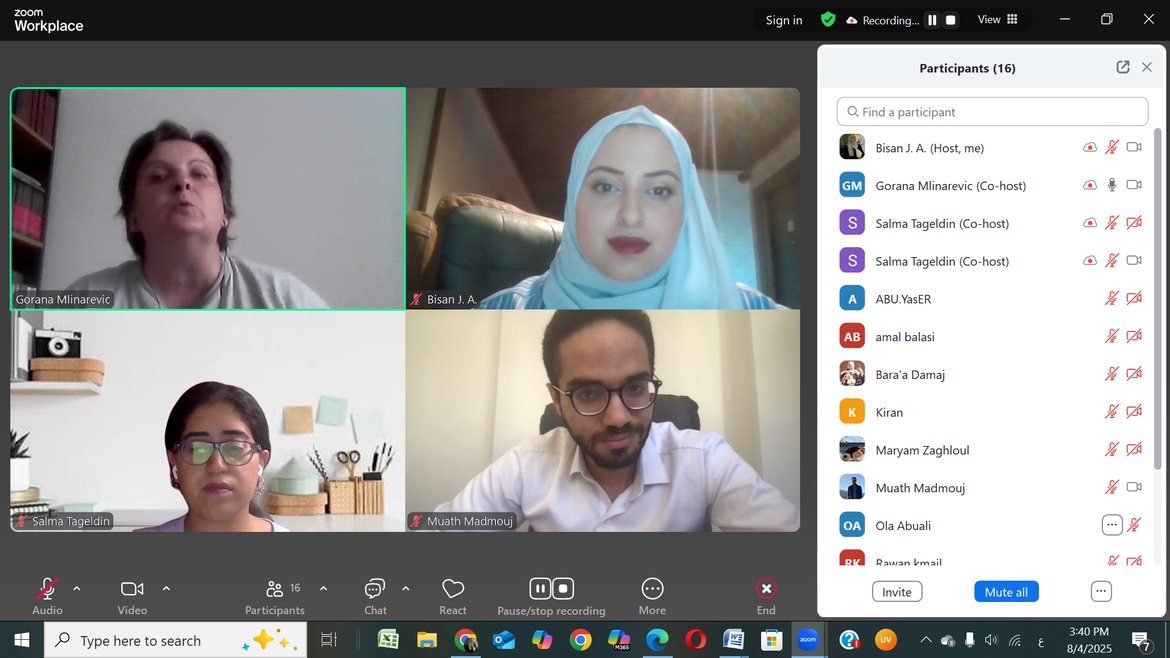
The Palestinian Institute of International Humanitarian Law and Human Rights at the Faculty of Law and Political Science – An-Najah National University organized a workshop on "Approaching Justice Within and Beyond International Law: Lessons learnt from Bosnia" via Zoom on Monday, August 4, 2025. The event brought together a group of undergraduate and master’s students from the fields of law and political science from various Palestinian universities, in addition to academics, legal professionals, and others interested in issues of transitional justice and international law.
The workshop was delivered by Dr. Gorana Mlinarevic from the Women’s International League for Peace and Freedom (WILPF), a prominent researcher and activist in the areas of transitional justice, gender, and human rights. Dr. Mlinarevic presented the Bosnian experience in achieving justice after conflict, with a particular focus on lessons that could be relevant to the Palestinian context.
She began by drawing parallels between the Bosnian and Palestinian contexts, highlighting the structural limitations within law and international relations, such as the ineffectiveness and stagnation of international institutions like the United Nations in responding to calls to halt acts of violence and genocide in Gaza, as well as the constraints imposed by global political dynamics.
The discussion also addressed legal and political challenges in prosecuting serious crimes, noting the multiple ways of engaging with international law beyond its technical dimensions as a purely legal system. It can also be understood as a strategic arena in which legal means are deployed. Dr. Mlinarevic explained that when such means are critically employed, they can contribute to broader struggles for justice. Therefore, she stressed the importance of not perceiving the law as a neutral or self-sufficient mechanism, but rather as one tool among many to confront the complexities of geopolitical reality.
In concluding remarks, Dr. Mlinarevic spoke about the importance of ensuring the meaningful participation of victims in international trials, emphasizing the need to place them at the center of cases—not merely as eyewitnesses or providers of testimony, but as individuals who have suffered harm and seek genuine, not symbolic or superficial, justice. She shared insights from her experience with people’s tribunals, particularly the Women’s Court, the first women’s court in Europe, organized by ten women’s groups from the former Yugoslavia to achieve genuine justice for women by placing victims at the heart of the court’s work. Women are encouraged to develop alternative legal practices and to influence institutional legal systems in ways that reduce political influence, state dominance, or control by any other party.

This workshop represent a part of the activities of the first academic course launched by the Institute on International Justice, Courts, and International Jurisprudence, which was offered during the summer semester of the 2024/2025 academic year in cooperation with the Master’s Program of International Law and Human Rights at An-Najah National University, within the framework of the project of establishing the Palestinian Institute for International Humanitarian Law and Human Rights, funded by the European Union.
عدد القراءات: 27
